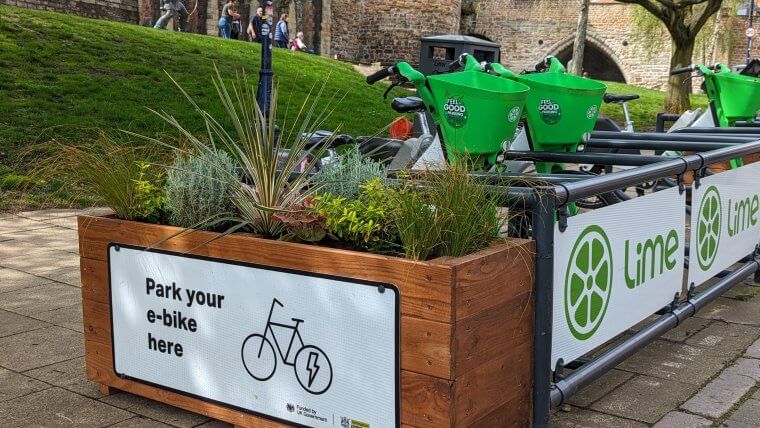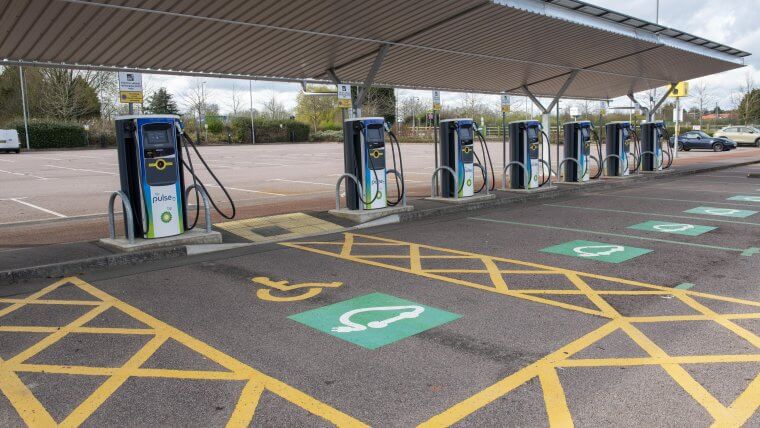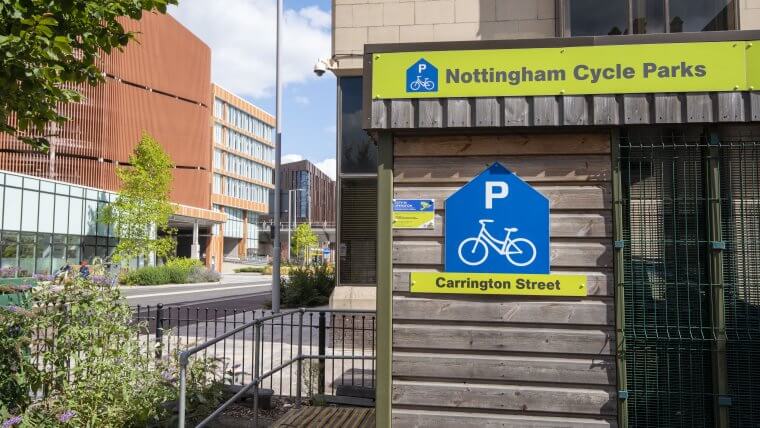16 June

We may not be able to see it, but air pollution affects us all, and causes up to 36,000 deaths in the UK every year.
But there are actions we can all take to improve the quality of the air we all breathe, reducing harmful emissions and protecting our health.
Thursday 17 June is national Clean Air Day, an annual campaign run by Global Action Plan to increase understanding around air pollution, and promote the ways we can tackle it.
Transport emissions are a key contributor, and that’s why the council has worked hard over a number of years to reduce the impact in the city.
This year we’re encouraging people to leave the car at home and try a greener way to travel.
What has Nottingham City Council done about air pollution?
This recent clip from BBC Breakfast news gives a short summary of the measures we’ve taken:
We want to make it as easy as possible for people to choose greener options. In the last year, we have:
- Encouraged people to leave the car at home and walk, cycle or scoot to school through the introduction of car-free School Streets
- Introduced and improved cycle lanes and other infrastructure, such as cycle parking
- Secured funding to offer local businesses trials of electric vans and e-cargo bikes
- Continued ‘greening’ the council’s own vehicle fleet
- Welcomed the first fully electric hackney taxis
- Expanded our own fleet – now 40 per cent electric – with the addition of the first two electric bin lorries in the world
- Continued to support an environmentally-friendly public transport network, improving payment options for customers through the Robin Hood Card
What can I do to reduce air pollution?
There are lots of ways you can help to improve air quality:
This handy air pollution calculator will give you an idea of your own personal contribution to air pollution, and what you can do to reduce it.
We’re encouraging people to go car-free for the day, such as by walking, cycling or scooting to school, or using public transport for longer journeys. There’s more information on the benefits of active travel to school over here, where you can also hear from several local families who have already given it a go.
-
Swap your drive to cycle or stride
Give your car the day off and walk, cycle or use public transport instead. If the distance puts you off, you could park further away and walk the rest of the way. What’s more, walking has the extra benefits of being cheaper and good for your health too. If you’d rather get pedalling, Nottingham boasts extensive cycle routes, hubs to leave your bike at and a bike hire scheme. And if you’re a bit rusty – or want to learn – we can help with that too.
-
Take the bus or tram
Not only are buses an efficient way of moving people, they also have some of the lowest emissions per person of any other mode of transport. And they’re only getting greener! The Euro VI diesel, biogas and electric buses on Nottingham’s streets have some of the lowest emissions around. Or take the electric tram, which is powered using renewable energy.
-
Switch off your engine
When you’re stationary in a petrol or diesel car – for example at a level crossing, waiting outside school or to pick someone up – turn off your engine. This is especially important outside schools – did you know small children are particularly vulnerable to vehicle emissions due to their height?
-
Find a quieter route
Explore your neighbourhood and take a route away from the main roads. Not only will you avoid the worst traffic pollution, you might discover something new.
-
Go electric
Electric vehicles are often cheaper to run and maintain. Nottingham is leading the way in the uptake of electric and other ultra low emission vehicles (ULEVs) – we’ve installed a whole network of regional charge points. For the convenience of a car without the costs of owning one, you could think about whether Enterprise Car Club might be right for you. They’ve got plans to expand the number of electric and hybrid vehicles available to book.
Why is clean air so important?
Air pollution can have serious, long-term effects on public health. Not only is polluted air bad for our lungs, it can also result in heart problems and cancer too.
What do you think the council could do to further improve air quality? Let us know





